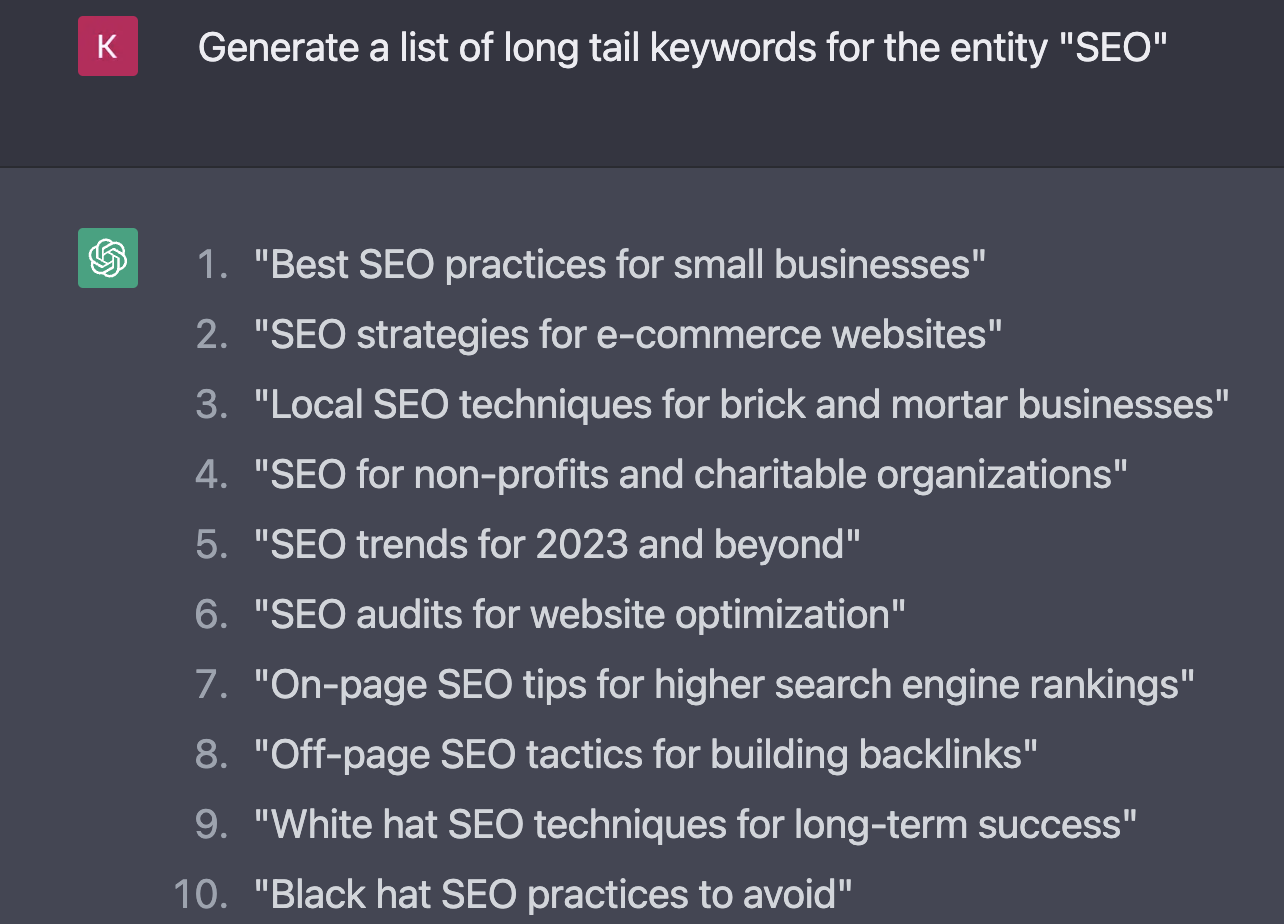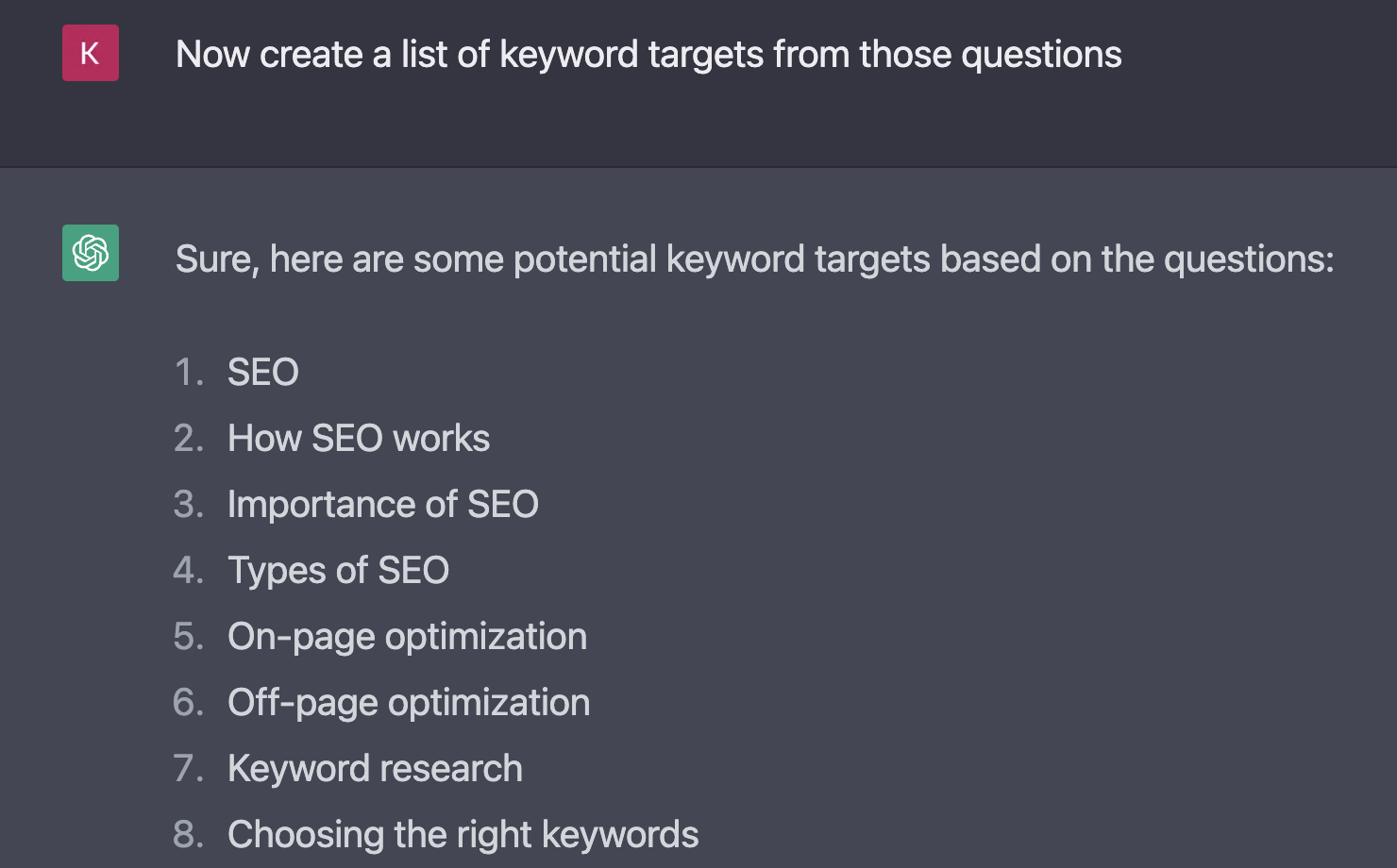You can barely go to your favorite coffeeshop these days without overhearing conversations about ChatGPT and AI – especially if your neighborhood is full of SEO professionals.
Digital marketing in general and SEO in particular have already developed a ton of use cases for ChatGPT (like Structured Data production) - and discovered lots of limitations to address along the way. In this post, I’ll identify five particular use cases within one of the building blocks of SEO: keyword research.
Before we dig in, a caveat: every one of these use cases is only effective if you have an expert doing the input and QA’ing the output. ChatGPT’s performance is only as good as the input it’s given – and is rarely better than 75% as effective as what an SME would produce. Its value is in the time it saves you to work on higher-level initiatives.
With that said, here’s how I use ChatGPT for keyword research.

1. Input a Seed Keyword or Phrase
Use a seed keyword or phrase related to your website or industry, and ask ChatGPT to generate a list of related keywords and phrases. This can help you identify keywords and phrases that you may not have thought of on your own.
Example:

2. Request Long-Tail Keywords & Phrases
Use ChatGPT to generate a list of long-tail keywords and phrases. Long-tail keywords and phrases are more specific and less competitive than short-tail keywords, and can help you target a more specific audience, often with higher intent to take action.
Example:

3. Request FAQs or Related Questions
Input a question or topic related to your website or industry, and ask ChatGPT to generate a list of questions or topics that are closely related. This can help you identify new keywords and phrases to target.
Example:

4. Request Keywords Based on Customer Journey Stage
Use ChatGPT to generate a list of keywords and phrases that are relevant to different stages of the customer journey, such as "research" or "purchase" stages. This can help you identify keywords to target at different stages of the customer journey.
Example:

5. Input Common Questions to Find Keywords
Use ChatGPT to generate a list of frequently asked questions related to your industry or product, then use those questions to generate keywords.
Example:

If you’re an SEO pro, you likely spotted optimization opportunities in each example despite being impressed by the initial output. This is where we are with ChatGPT: it’s imperfect, it’s fast, it’s a time-saver, and it absolutely reinforces the differentiating value of human experts.
If you have any questions about how we can use ChatGPT to help optimize your organic search, drop us a line.
